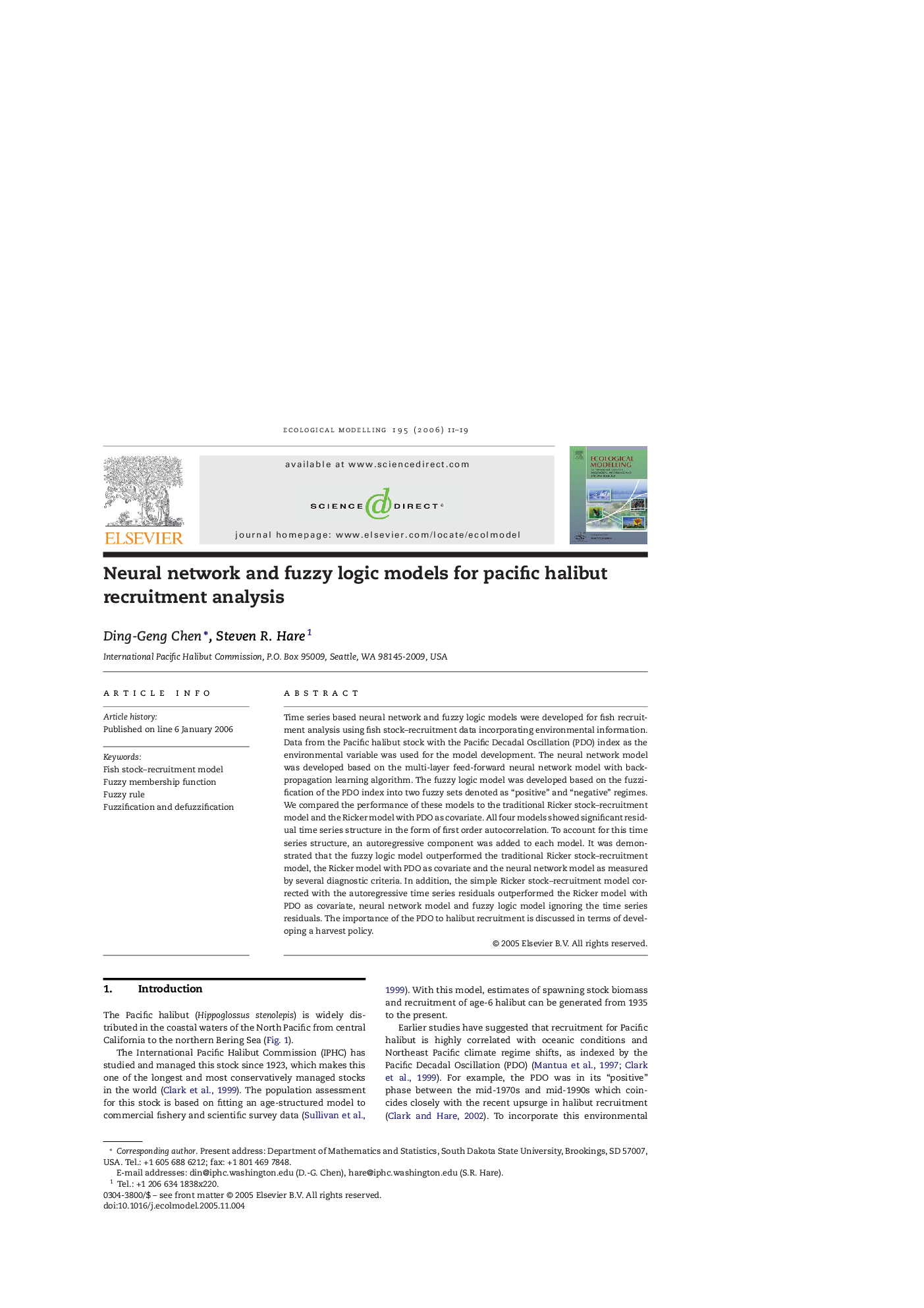| Article ID | Journal | Published Year | Pages | File Type |
|---|---|---|---|---|
| 4379085 | Ecological Modelling | 2006 | 9 Pages |
Abstract
Time series based neural network and fuzzy logic models were developed for fish recruitment analysis using fish stock-recruitment data incorporating environmental information. Data from the Pacific halibut stock with the Pacific Decadal Oscillation (PDO) index as the environmental variable was used for the model development. The neural network model was developed based on the multi-layer feed-forward neural network model with back-propagation learning algorithm. The fuzzy logic model was developed based on the fuzzification of the PDO index into two fuzzy sets denoted as “positive” and “negative” regimes. We compared the performance of these models to the traditional Ricker stock-recruitment model and the Ricker model with PDO as covariate. All four models showed significant residual time series structure in the form of first order autocorrelation. To account for this time series structure, an autoregressive component was added to each model. It was demonstrated that the fuzzy logic model outperformed the traditional Ricker stock-recruitment model, the Ricker model with PDO as covariate and the neural network model as measured by several diagnostic criteria. In addition, the simple Ricker stock-recruitment model corrected with the autoregressive time series residuals outperformed the Ricker model with PDO as covariate, neural network model and fuzzy logic model ignoring the time series residuals. The importance of the PDO to halibut recruitment is discussed in terms of developing a harvest policy.
Keywords
Related Topics
Life Sciences
Agricultural and Biological Sciences
Ecology, Evolution, Behavior and Systematics
Authors
Ding-Geng Chen, Steven R. Hare,
